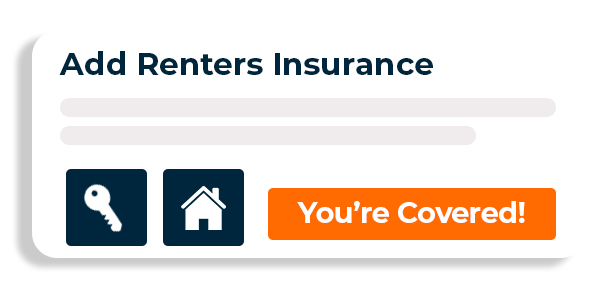Simple insurance options for renters and landlords.
Renters Insurance covers damages to the apartment and protects the renter and their personal belongings if the unexpected happens.



Applications, rent payments, and insurance all in one place.
Renters know they need insurance – in fact, many property managers require it. Finding coverage is where it gets complicated. What if tenants could apply for a rental, pay their deposit, and add Renters Insurance without ever leaving your platform?
Add value to your property management software and give your platform the competitive edge with embedded Renters Insurance.
